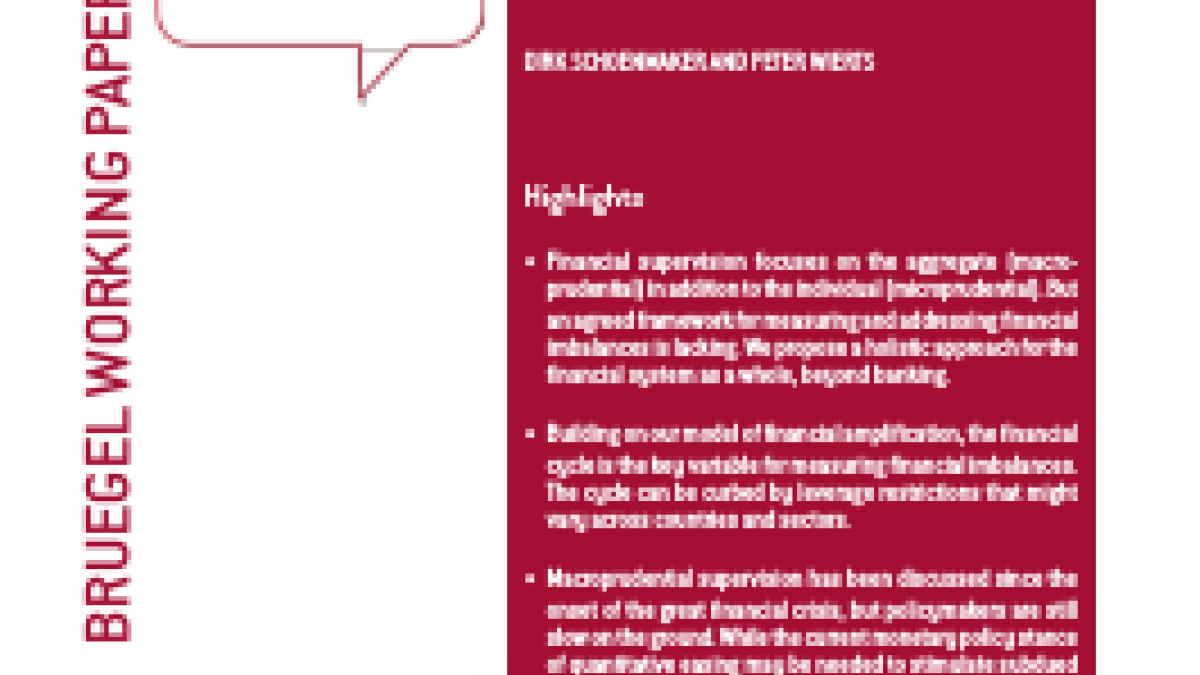Macroprudential supervision: from theory to policy
While there is now consensus that financial supervision has to focus on the aggregate (macroprudential), in addition to the individual (microprudentia

Highlights
Financial supervision focuses on the aggregate (macroprudential) in addition to the individual (microprudential). But an agreed framework for measuring and addressing financial imbalances is lacking. We propose a holistic approach for the financial system as a whole, beyond banking.
Building on our model of financial amplification, the financial cycle is the key variable for measuring financial imbalances. The cycle can be curbed by leverage restrictions that might vary across countries and sectors.
Macroprudential supervision has been discussed since the onset of the great financial crisis, but policymakers are still slow on the ground. While the current monetary policy stance of quantitative easing may be needed to stimulate subdued growth, the risk of financial booms is increasing. We make concrete policy proposals for the design of macroprudential instruments to simplify the current framework and make it more consistent.



